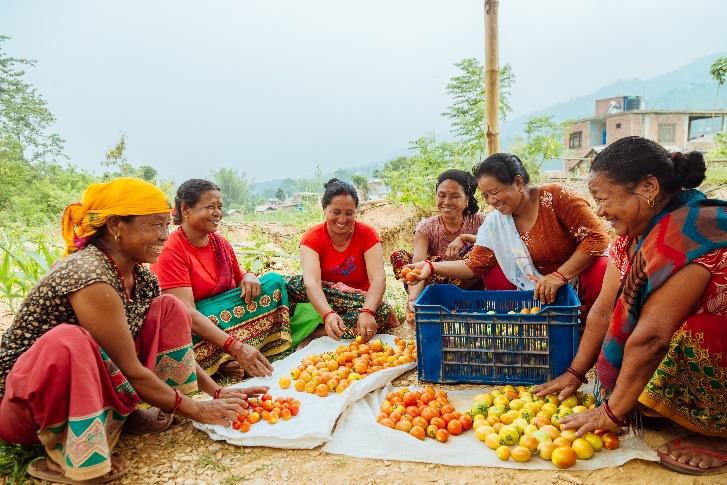Value Chains for Inclusive Transformation of Agriculture
Program Period: June 2022- June 2028
The Value Chains for Inclusive Transformation of Agriculture Program (VITA), co-designed with IFAD and supported by the Government of Nepal and the Ministry of Finance, aims to bridge the gap between small-scale producers and profitable market opportunities. Implemented by the Agricultural Development Bank Ltd., VITA empowers Nepali farmers by improving agricultural businesses, promoting financial inclusion, and driving sustainable economic growth.

The program strengthens farmers’ capacities through social capital building, using innovative concepts like “Bank Sathi” translated as (Bank Friends) to enhance financial access. Local facilitators help farmers access loans and other financial services, improving their financial capabilities. VITA focuses on seven high-potential value chains such as vegetables, goats, fish, cereals, potatoes, dairy and bananas.
Operating across 28 districts, VITA will scale nationwide, with intensive activities in 9 target districts to improve market linkages and build social capital. The program integrates advanced agricultural technologies like drip irrigation and mulching, along with gender-sensitive tools like GALS-lite to empower women, enhance nutrition, and build business skills. It also focuses on youth inclusion, targeting young adults under 25, and promotes climate resilience through digital financial services and sustainable investment practices.
By directly benefiting 70,000 families, including landowners, landless laborers, and vulnerable communities, VITA improves local food security, reduces reliance on imports, and supports MSMEs through enhanced infrastructure. With 60% of beneficiaries being women and 30% youth, the program ensures its benefits reach marginalized groups such as Dalits and Janajatis. VITA is committed to gender-transformative outcomes, empowering women to lead in supply chains and creating better opportunities for young adults. By integrating climate resilience and accelerating digital rural financial services, VITA is shaping the future of inclusive and sustainable agriculture in Nepal.

